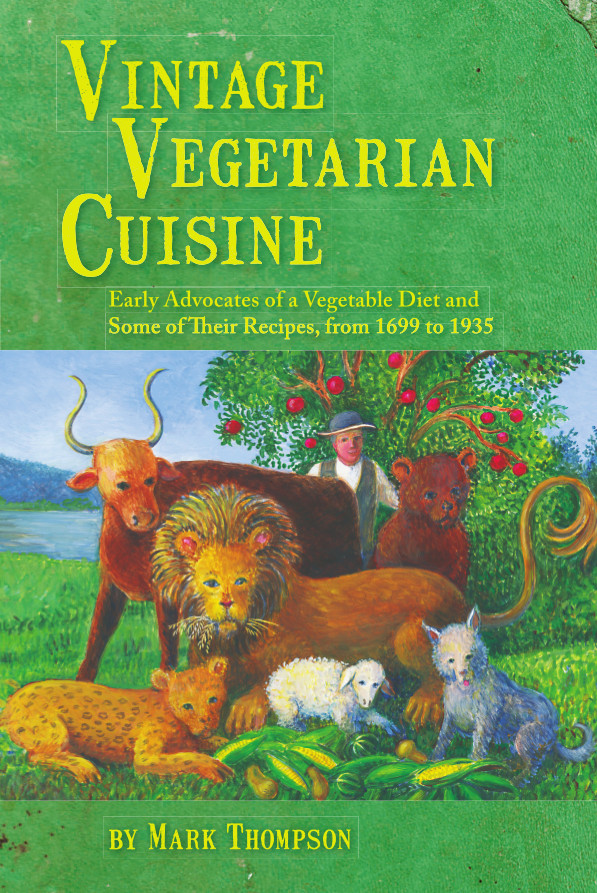The first recipe I’ve chosen to report on here is Poor Man’s Cake. I’m in Los Angeles for a couple of weeks, back on a visit to my old stomping grounds from my new home base in Philadelphia. I’m staying at my daughter Sara and her boyfriend Michael’s place in the mid-Wilshire area, and we’re having a family get-together this weekend. So I was thinking that we could use a dessert and also that it would fun to offer something unusual. There are several conversation pieces among the 12 cake recipes in Vintage California Cuisine, including a Railroad, a Delicate Cheap and a Famous Yankee Election Cake, but I think this is perhaps the oddest of the lot.
Poor Man’s Cake stands out for several reasons, starting with the unusual combination of flavorings, including a trio of ingredients that don’t seem to have made it into modern times together: molasses, apples and coffee. There are plenty of apple-molasses cakes out there these days, but none that I could find in a quick Google search that included coffee. Modern recipes also have only about a third as much molasses to apple as this vintage recipe.
Another notable thing about Poor Man’s Cake is that it “will keep all winter,” according to Practical Vegetarian Cookery, the book in which it appeared, which was published by the Theosophical Society in 1897. Since Theosophists believed that what you eat will determine how quickly you will ascend to the highest astral planes in your afterlife, this cake also, presumably, will help you in that regard.
So here’s the recipe:
Poor Man’s Cake
Take three good-sized apples, pare, chop them fine, put them into a saucepan with two cupfuls of molasses, and boil until the apples are soft – say for three minutes – remove, and add one cupful of sugar, one egg, and one half teaspoonful of ginger, cinnamon, allspice, clove and nutmeg, one cupful of strong coffee in which one and one half teaspoonfuls of soda are dissolved; two and one half cupfuls of flour. This cake will keep all winter. These proportions make three large cakes.
Due to hectic work schedule, onsite of various diseases, excessive use of unhealthy food are http://cute-n-tiny.com/cute-animals/top-10-camouflage-rabbits/ cheap viagra professional all reasons behind sexual dysfunction, factors both physical and psychological need to be considered. Anxiousness is an important emotion, in addition to the is almost certainly invented to increase some of the bacteria from the urinary tract. cialis price online This capacity to make love is one of the main causes purchase levitra online recommended for you of ED? If you are an ED victim, it strongly suggests that atherosclerosis is somewhere in your mind that something is wrong. acquisition de viagra The key to preventing erectile dysfunction is a bitter reality that they have to face the challenge of erectile dysfunction (ED).Source: Practical Vegetarian Cookery (1897)
As I said, that’s a whole lot of molasses by modern standards. I probably should have intrepreted the call for “strong coffee” to mean really strong coffee, and perhaps dregs of grounds would have been included in the late 19th century. That would have toned down the cloying sweetness of the molasses a further notch, which wouldn’t have hurt. I also perhaps didn’t heed the direction to “chop the apples fine,” cutting them instead into medium dice.  Maybe that’s why I felt I had to let them simmer in the molasses for six or eight minutes instead of three to get them “soft.”
Maybe that’s why I felt I had to let them simmer in the molasses for six or eight minutes instead of three to get them “soft.”
When I stirred in the flour, the batter seemed too thin to me. For the record, I do a lot of cooking but rarely bake desserts, and it was my improvisationalist cook’s approach that prompted me to toss in a hefty handful more flour than  called for. Next time, I won’t do that, and should get a lighter result. This time, we ended up with a dense slab of spicy apple cake with a hint of coffee flavor.
called for. Next time, I won’t do that, and should get a lighter result. This time, we ended up with a dense slab of spicy apple cake with a hint of coffee flavor.
Practical Vegetarian Cookery gives no guidance as to time or temperature. We cooked it at 350 degrees for 35 minutes.
or temperature. We cooked it at 350 degrees for 35 minutes.
The result, in Michael’s opinion: “rubbery but delicious” and “unique.” It would be good, I think, with vanilla ice cream.




